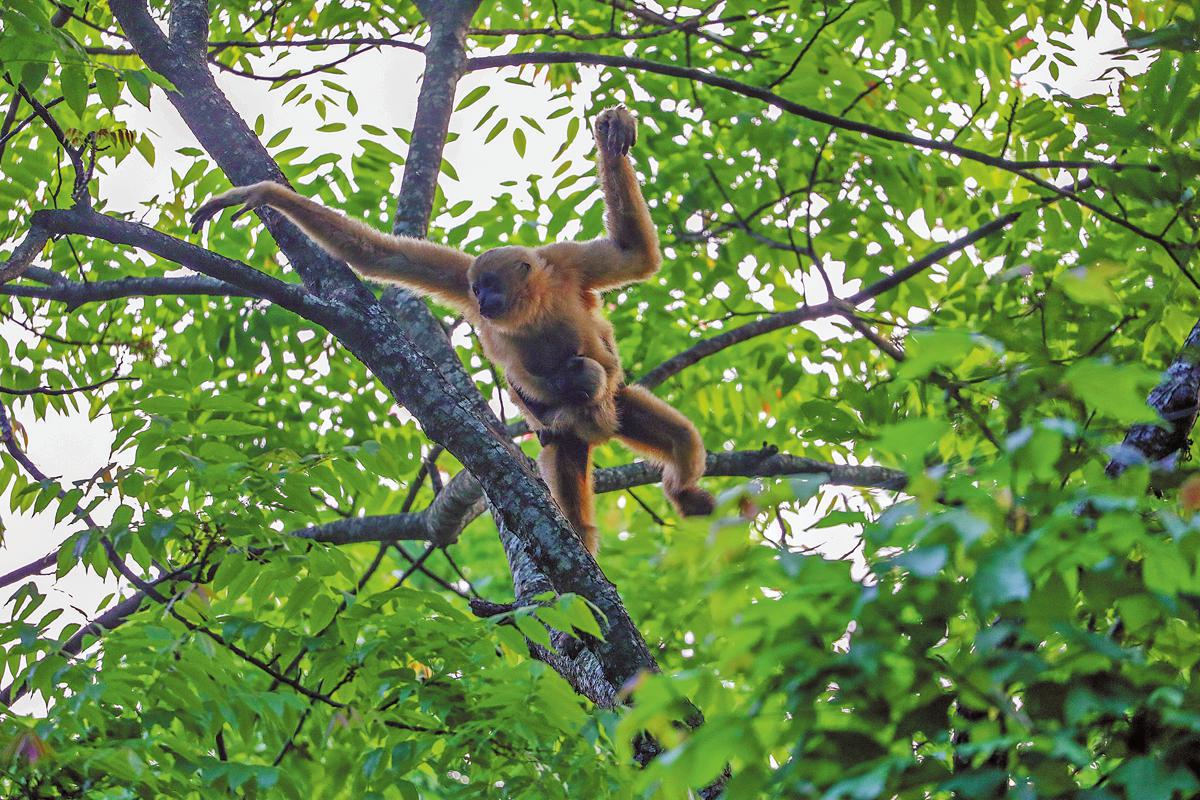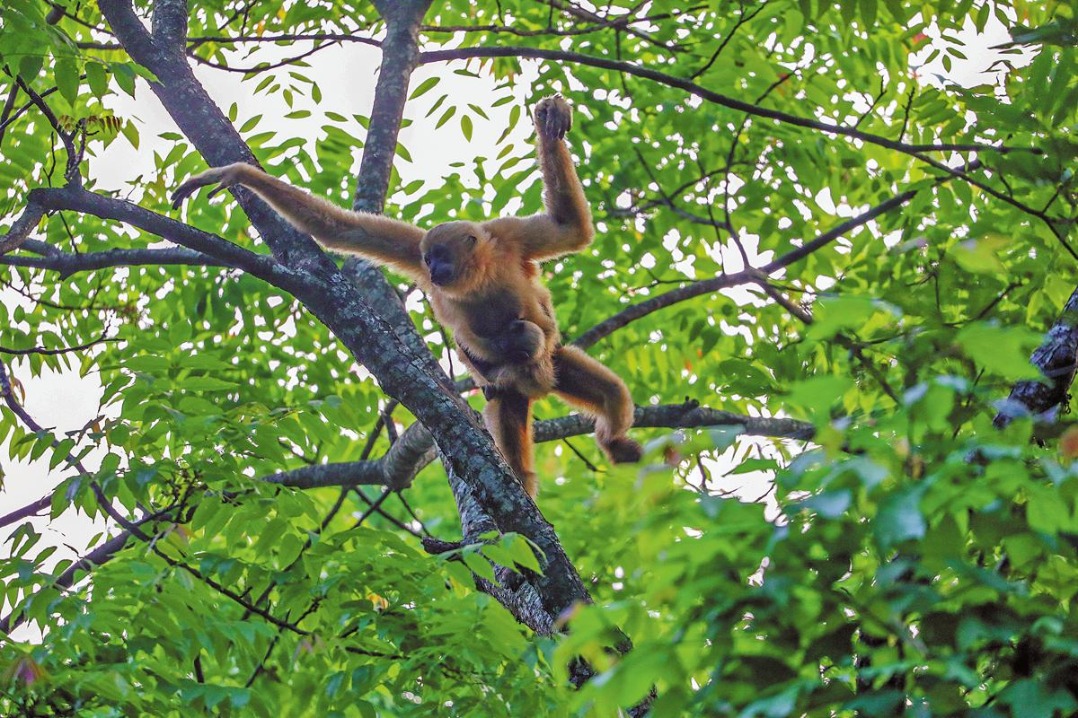Rainforest brings gibbons back from edge of extinction
In South China's Hainan province, vibrant biodiversity thrives in lush tropical jungles


Among the many species of wildlife inhabiting the southern Chinese island are the Hainan gibbons, the most endangered among all gibbons and one of the world's rarest primates.
The unique ecosystem is also home to nationally protected animals such as the round-nosed giant lizard, the Hainan partridge, and the Hainan peacock-pheasant. Relocation and reintroduction efforts have seen the return of 30 Hainan Eld's deer, while precious plant species like agarwood, Hopea hainanensis Merrill & Chun and the over 2,600-year-old Dacrydium pectinatum flourish here.
The Hainan Tropical Rainforest National Park was established on Oct 12, 2021, making it one of the first five designated national parks. Spread over 4,269 square kilometers, the park, known as a "wildlife and plant paradise", is a haven for exclusive tropical species and genetic diversity.
Hainan tropical rainforest's pioneering work in carbon sequestration has led to an initial transaction volume of 350,000 yuan ($47,732). On July 10, the forestry department hosted a signing ceremony for the Tropical Rainforest Carbon Sink Trading and Project Cooperation. Three companies in Hainan subscribed to a total of 350,000 yuan in tropical rainforest carbon offsets.
With a forest coverage of 95.85 percent, it makes up over 95 percent of the island's primary forests and more than 55 percent of its natural woodlands. The park acts as a crucial ecological shield for Hainan, earning the moniker "ecological green heart" for its local and global conservation significance.
It is also the wellspring for major rivers like the Nandu, Changhua and Wanquan. This dense tropical rainforest not only stands as a pivotal conservation area for water sources but also acts as a critical ecological barrier, protecting against wind and flood hazards.
Since the launch of a pilot system for a tropical rainforest national park in 2019, the Hainan tropical rainforest has uncovered a total of 75 new species, including nine new records for China and 19 new records specific to Hainan province, according to the National Forestry and Grassland Administration.























